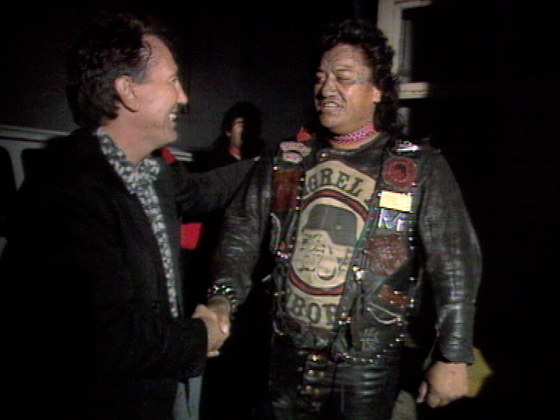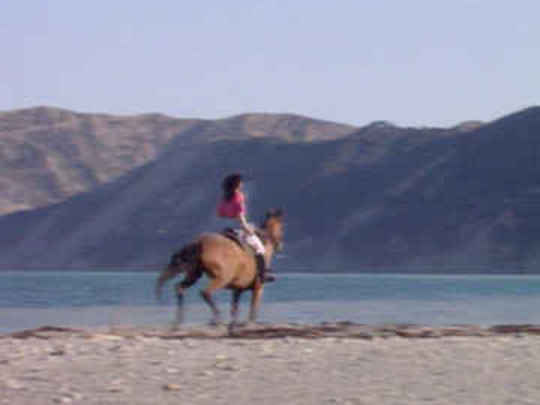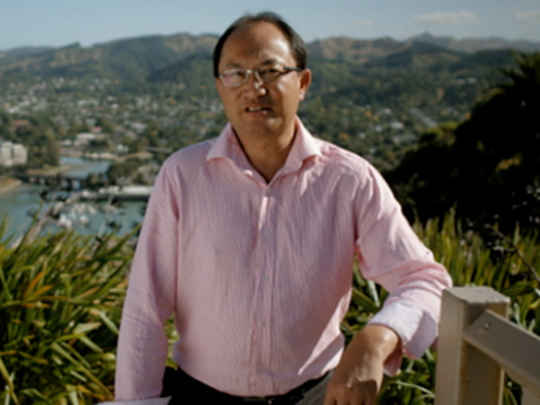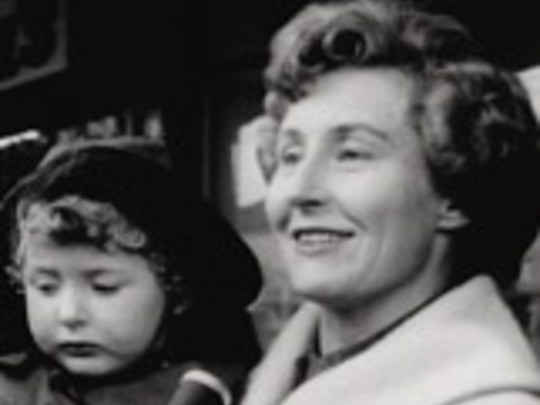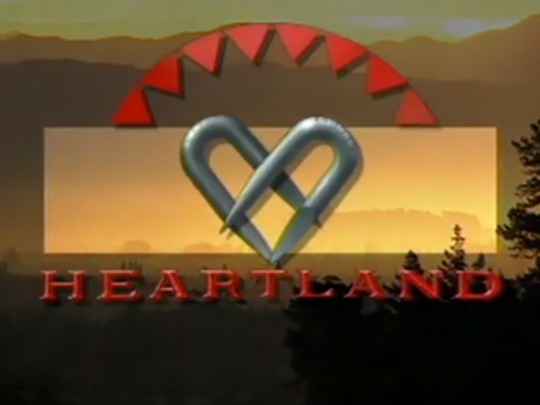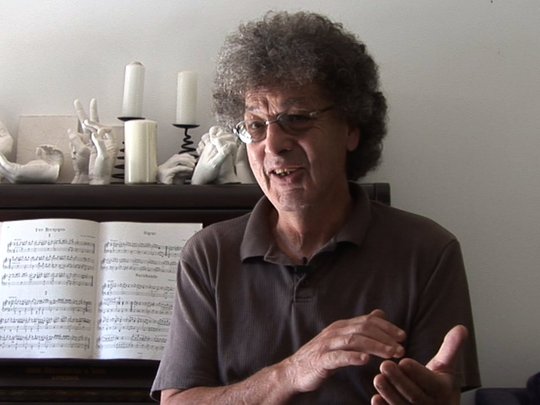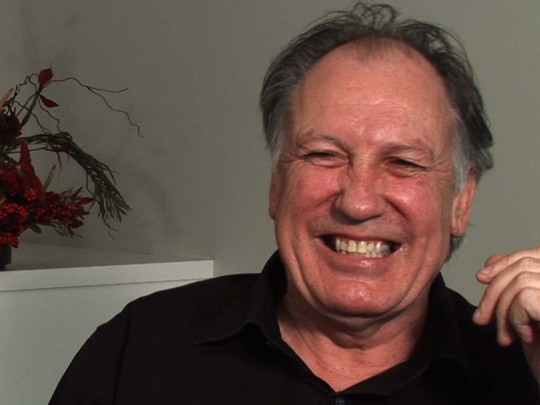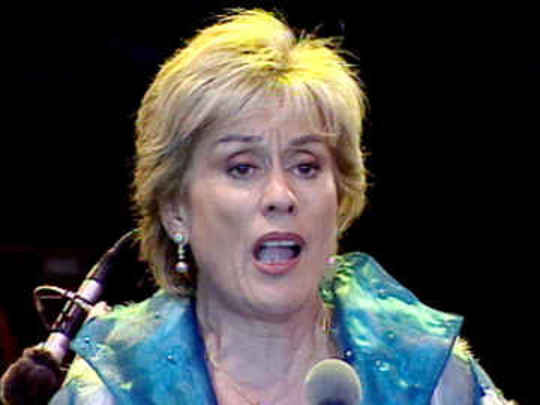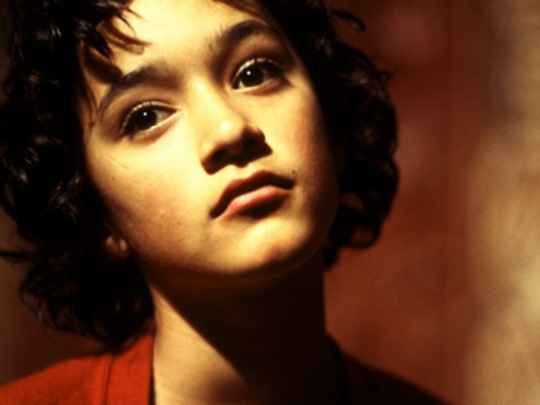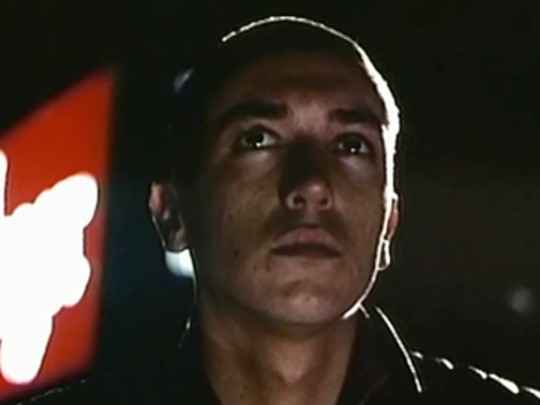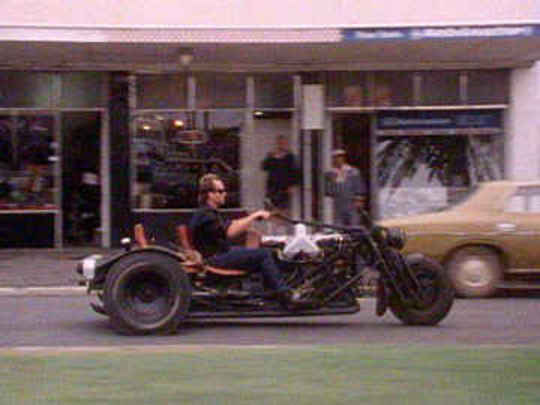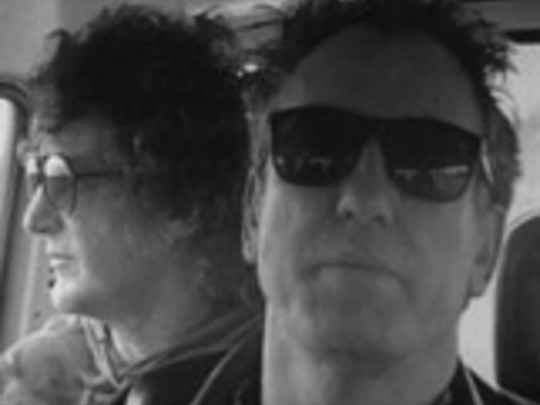We may not have croissant shops that are open on Sundays, but we know how to have fun. The streets of Gisborne are alive with the sound of music everywhere you go.
– MC Gary McCormick warms up the crowd at the Gluepot, late in this documentary
This is a real pleasure to police a town like this. I came from Wellington where I had about 300 staff. I've only got about half that number here. It's a lovely place to police because there's much of the village quality about it. The families around here have been here for a number of generations and everybody knows everybody in town . . . Down there in Wellington you are just one of the guys in the barrel. Up here, you know as the chief of police, you tend to be a bit like the king. It was a culture shock being treated the way I get treated. But I actually do enjoy it.
– Gisborne Police Chief Rana Waitai (and future MP)on enjoying his job, in 1994 book Heartland, page 72
I don't eat it.
– A friend of Rana Waitai refuses to sample his haggis
There is talk that I could become an honourary one [member of the Mongrel Mob]. But they haven't got big enough jackets yet.
– Publican Peter Gardner on allowing the local Mongrel Mob use of his facilities
We don't really feel it, we um, we feel as if 'this is our town, we live here' you know just like anyone else ...we do know it makes us be different from everyone else, the way we dress, but you know we, you could say we're intimidated when we're in a room full of people with suits and ties on.
– Mongrel Mob leader Ike Miringaorangi on being a visible presence in town
I grew up about 48 miles up the road in a place called Tiniroto 'the place of many lakes', spent a lot of time on horses running away from the local bobby for breaking windows and all that sort of thing and um ... nothing really serious and you get your experience through that and you decide that it's one step from there to probably go to borstal to jail, and you say hey you know that's not the way, so there's other ways you can get in and help other kids otherwise it's gonna be my wahine or son gonna get mugged or killed one of these days so...somebody has to get out there and do something about it.
– Youth worker and musician Wiremu Niania on his work with Tairāwhiti youth
For my generation of people who are Māori and am still Māori to the core, I find it so very easy to be just myself, as Māori, and as easy [as] it is for me to live as a Pākehā, because that is the way that we live. Now, I don't say that to a Pākehā to become Māori. But I do say admire and think 'that's good' if they want to learn to speak Māori, because once they've learnt to speak Māori, they would have a better understanding of how I as a Māori . . . am different, culturally . . . I think we would have a far better understanding.
– Kuia Heni Materoa Sunderland on the relationship between Māori and Pākehā in Aotearoa
The East Cape's a bit like a big, old, scarred bull. You want to help it, but every time you get near it, it belts you, it butts you, or kicks you, or rolls on you or something and it's either a storm or a flood or a drought. It's one of the charms of living on the East Cape. Here is the fact you're living on dynamite. It's an absolutely glorious part of the country, but it is hard and vicious as well, and you turn your back on it and it will hit you on the neck...Gisborne will make it, you can't kill a cockroach . . . the people here are resilient and determined and the ones that stick it out are the ones that can stick it.
– Legendary cartoonist and East Coaster Murray Ball waxes lyrical about Tairāwhiti, in 1994 book Heartland, page 69
Take me to a better place in the world, because I don't know of one . . . How do I describe Gisborne people? Friendly, gregarious. They're not gonna lie down and die just because we've had a bit of a set back. I believe that Gisborne is really fighting back.
– Morrin Hardy from the Business Development Centre, late in this documentary
You could get a job at Watties or in the burgeoning wine industry, or clean pub toilets and work as a part-time school caretaker (like me) and surf to your heart's content. We had live music, ranging from Dragon, Hello Sailor, Mi-Sex, Herbs and nearly every other wonderful rock band New Zealand has ever known, in local pubs six nights out of seven. It was heaven.
– Gary McCormick on life in Gisborne in the 1970s and 80s, The Herald on Sunday, 20 October 2013
The programme was well received outside of the town and amongst younger people in Gisborne. But there was a lot of on-the-street comment from the more conservative elements (some of it broadcast on local radio) that there were 'too many Māoris' in it — this despite the fact that Gisborne's population is nearly 50/50 Māori-Pākehā. There was also criticism of some scenes involving the local Mongrel Mob. The programme has since been cited by a local businessperson as "precisely the kind of publicity" the town does not need.
– Gary McCormick on the documentary's reception, in 1994 book Heartland, page 69
This is a region which I refer to as the "last frontier". Not because of any past lawlessness, but because I am unaware of any other part of New Zealand which seems to removed from the mainstream of Kiwi life and where the raw edges of differing cultures and ideologies rub up against one another.
– Gary McCormick describes the East Coast, in 1994 tie-in book Heartland, page 73
